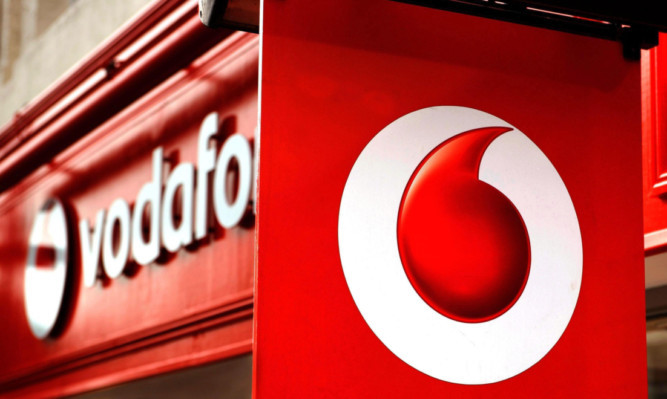Mobile phone giant Vodafone paid no UK corporation tax for the second year running despite earning more than £5 billion of revenues in Britain.
The Berkshire-based group said investment in its UK network and interest payments more than wiped out corporation tax liabilities during the year to the end of March, although it paid around £3 billion of tax overseas.
Its annual report also revealed chief executive Vittorio Colao’s total pay fell 30% to £11 million due to lower share incentive rewards.
The company insisted it was committed to “integrity in all tax matters”, adding it paid £882 million in other UK taxes and contributions during the year.
Vodafone’s UK operating profits fell to £294 million during the year from £402 million a year earlier amid slumping voice and service revenues. Underlying earnings in the UK fell to £1.2 billion from £1.3 billion during the year.
However, the tax revelation is likely to add fuel to a debate about multinationals’ tax contributions, which has seen bosses from Google and Starbucks called before MPs to explain their tax affairs.
Vodafone also paid no UK corporation tax in its 2011/12 financial year.
The company said the UK contributed just 2.5% to its overall profits. Vodafone’s group operating profits were 3.7% higher at just under £12 billion during the year, despite sales falling 4.2% to £44.4 billion – its first drop in annual revenues for seven years.
In a new report on tax, published alongside its annual report, it said: “Individuals and companies have legal obligations to pay tax; but those obligations do not extend to paying more than the amount legally required.”
A spokesman said the company paid £300 million of interest during the year on loans to fund its £6 billion purchase of 3G (third-generation) spectrum or airwaves in 2000 – which it offset against last year’s profits.
It also recently paid the Government £802 million for 4G spectrum which it will use to launch superfast mobile internet, and is increasing UK network spending to more than £900 million this year to prepare for the launch.
He added: “We believe the UK tax debate should be wider than just merely looking at corporation tax, because different industries make their – in our case significant – contributions in a variety of ways.”
Mr Colao’s pay packet dropped from £15.8 million a year earlier, largely down to a fall in long-term share awards vesting during the year. These decreased to £7.5 million from £11.3 million a year earlier. His pay packet included a £1.1 million salary.
Chief financial officer Andy Halford’s total pay dropped 37% to £6.5 million as his long-term share incentives also plunged.
The company also froze executives’ basic pay during the year and said their salaries will not rise in its new financial year. Vodafone employs around 14,000 of its 91,000 staff in the UK.
